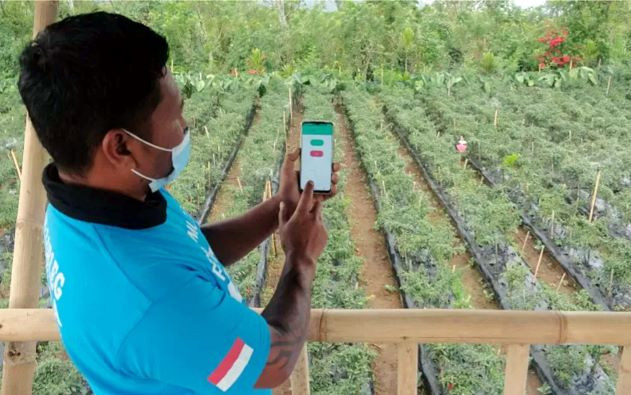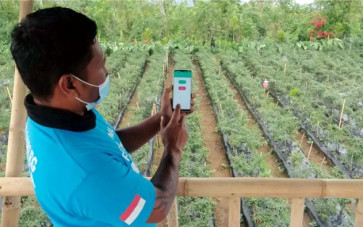Popular Reads
Top Results
Can't find what you're looking for?
View all search resultsPopular Reads
Top Results
Can't find what you're looking for?
View all search resultsNavigating the digital economy for marginalized communities
Although internet users have reached 73 percent of the total Indonesian population, Indonesia’s internet connection speed still lags compared with its neighbors.
Change text size
Gift Premium Articles
to Anyone
T
he digital economy is continuously unfolding, accelerated by the COVID-19 pandemic. The leading sectors are e-commerce, transport, online media and financial services. These sectors provide economic opportunities to enhance prosperity and welfare.
But there is a growing concern about whether marginalized communities can participate and benefit from this transformation. If so, in what ways, and how to navigate them to ensure no one is left behind.
A recent report by Google, Temasek, and Bain & Company predicted that Indonesia’s digital economy will total US$130 billion in 2025 and grow to $360 billion in 2030. That is fantastic worth. But the expected value depends on a set of enablers, including the readiness of digital skills for marginalized communities and communication infrastructure for rural areas.
Broadly, the digital economy is economic activities people do over the internet using technologies to increase efficiency, improve productivity, widen market spread and reduce costs. It incorporates the physical infrastructure that digital technology depends on, such as broadband lines and devices, as well as the power and the function they offer, like internet of things (IoT), data analytics and cloud computing.
This set of the digital economy promises economic development for marginalized individuals. An example of this can be observed in e-commerce industries that increase the productivity of household enterprises, which is crucial in expanding the middle class and creating new prosperity for excluded workers such as women, the youth, semi low-skilled and disabled people.
Numerous stories illustrate how the digital economy can build welfare and prosperity. Think of semiskilled workers living in peripheral Indonesia, selling shoes and reaching a market they never imagined through delivery and e-commerce platforms. Again, a group of marginalized women living in rural areas, say Papua, create traditional baskets made of bamboo and sell them online.
A low-skilled laborer using a motorbike and getting a job as a driver in Indonesia’s ride-hailing companies, a young family in Bali leasing their flat to tourists throughout the year using the Airbnb platform. These depict how the digital economy can create new economic models and jobs.


















